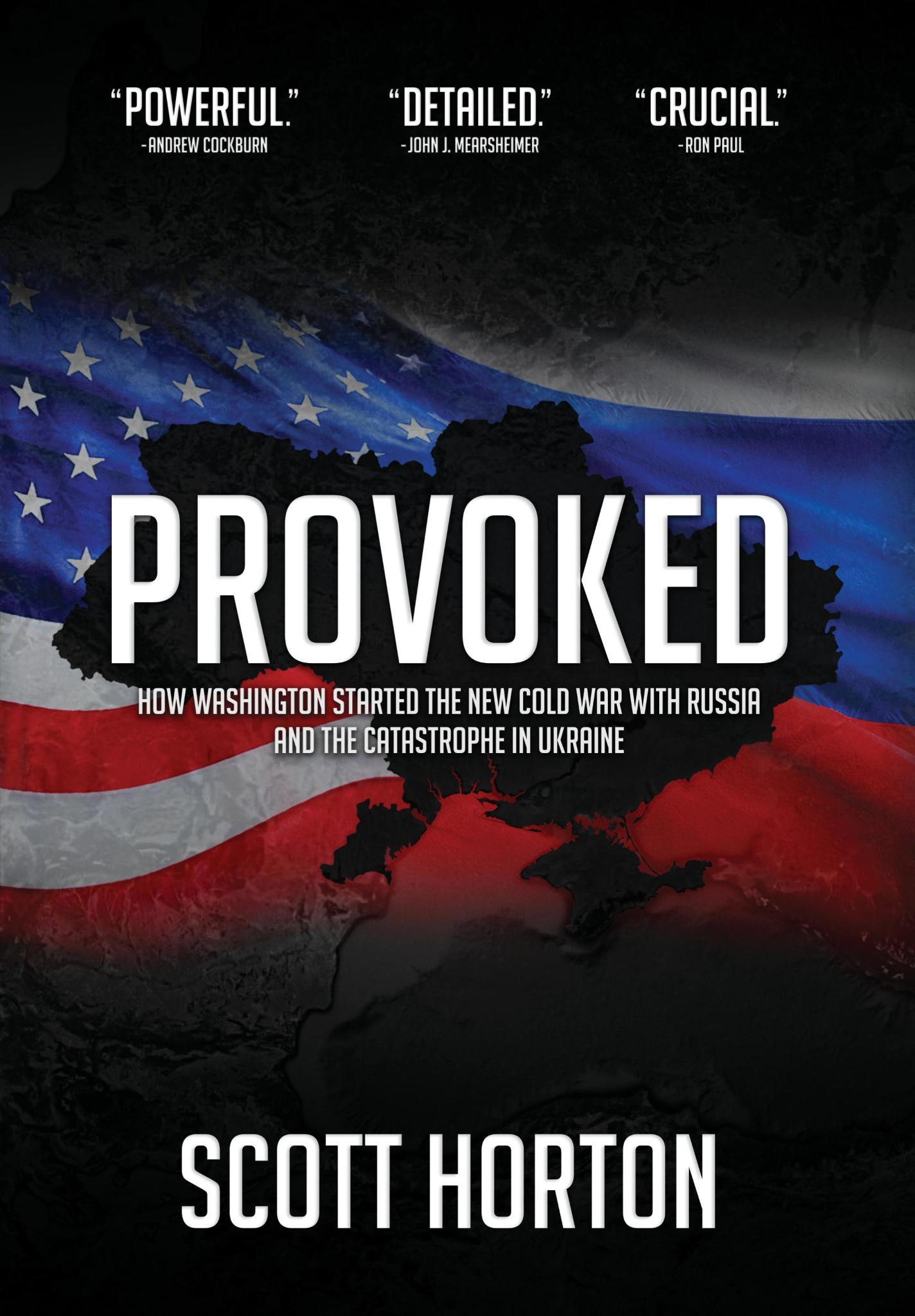There are many threads leading to the collapse of the mutual good feelings that American and Russian leaders entertained for several years after the Soviet Union began to disband the Warsaw Pact in 1989. Horton relates how the U.S. and NATO threw military weight around in the Balkans (its military intervention against Serbia over its province of Kosovo exposed the hypocrisy of Washington’s professed respect for the sanctity of borders), supported radical Muslim Chechen rebels within Russia, and gave financial and political backing to various “color revolutions” in the former Soviet states, most with the unveiled intention of spreading regime-change “democracy” in the Russian Federation itself.
The strong continuous thread running through the entirety of Horton’s narrative is Washington’s insistence that NATO expand into the states of former Soviet empire and keep expanding, despite consistent warnings from Russian diplomats, European leaders, and the crème de la crème of American regional and foreign policy experts that such expansion would lead inevitably to conflict. NATO expansion was not the policy of “the best and the brightest”—David Halberstam’s sardonic phrase for the elites who led America into Vietnam. In this case the best and the brightest were divided, but predominantly opposed.
Horton, the host of a popular foreign policy podcast and the editorial director of Antiwar.com, a leading outlet of the Ron Paul persuasion in foreign policy, is an unlikely advocate for the realists of the American establishment. But in Provoked they emerge as sympathetic but tragic characters—the men (in most cases) whose judgement was always proved to be correct, who were listened to but then ignored by every president from George H.W. Bush to Joseph Biden. Those ready to recognize post-communist Russia as a serious power—one with regional interests that it was in America’s interest not to ignore or flout—made up the faction that always lost in Washington.
The NATO expansion story begins with Secretary of State James Baker’s statement to Soviet premier Gorbachev in a 1990 Moscow meeting that NATO would expand “not one inch” to the East if the Soviet Union withdrew its troops from East Germany and allowed peaceful German reunification. The meeting and parallel ones between Russian and German leaders have since been parsed endlessly. Yes, Baker’s statement never was written into any codified agreement, and Gorbachev headed an entity—the Soviet Union—that would soon cease to exist. After the Union dissolved itself and its Russian core fell into a decade of economic and social crisis under the regime of shock privatization, Russia was so weak that a verbal promise from an American secretary of state could safely be ignored if Washington chose.
